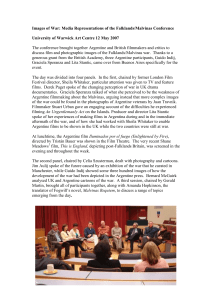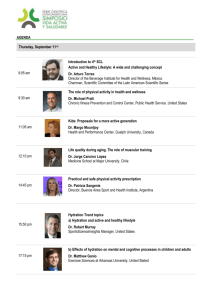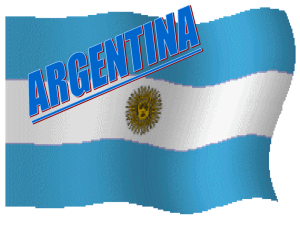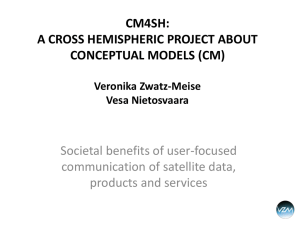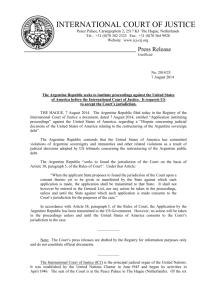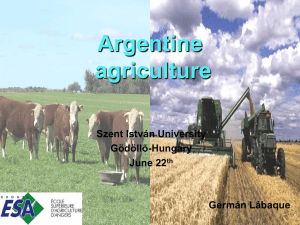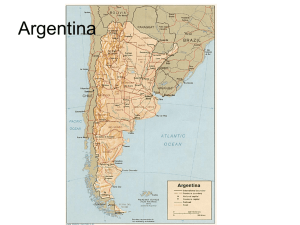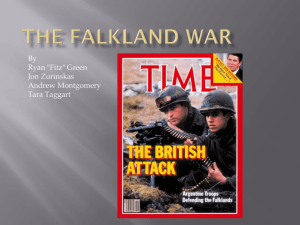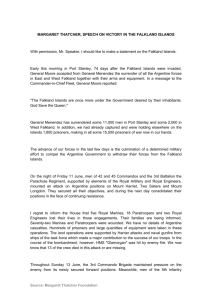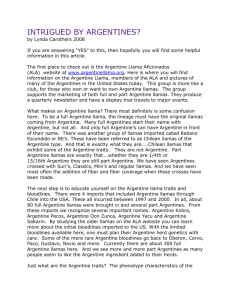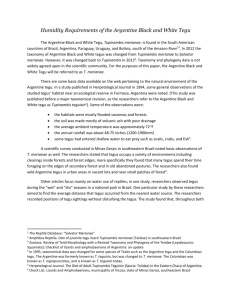Conceptual Models for the Southern Hemisphere
advertisement
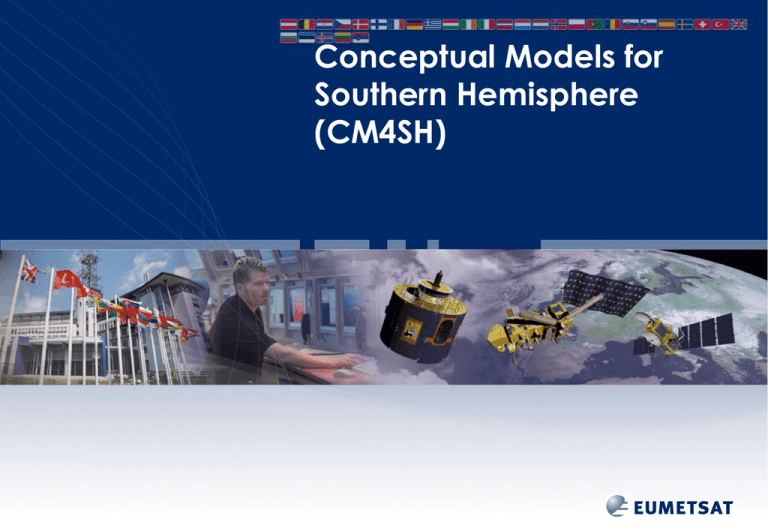
Conceptual Models for Southern Hemisphere (CM4SH) CM4SH project involves four Centres of Ecxellence Slide: 2 Project team: CoE experts Review: CIRA + NOAA Slide: 3 Funding: WMO+EUMETSAT The Objectives To collect, create and share resources about CMs for Southern Hemisphere. To increase the operational forecasters’ understanding of the weather systems with the help of CMs. Slide: 4 Baroclinic leaf Comma cloud Vortex deformation cloud Buenos Aires MCS CM4SH part I ended March 2014 Slide: 6 CM4SH part IIinvolves to begin CM4SH project four January Centres of2015?! Ecxellence 1. Same partners + maybe one new... 2. Document 6-10 more CMs 3. Training aspect – advise needed! Slide: 7 Comments from Project Partners South Africa Vlab CoE Project • Create a conceptual model of Cut Off Low (COL) Pressure systems over Southern Africa (Lee-ann Simpson & Jannie Stander, SAWS) • Create a conceptual model of continental tropical lows (Dr Liesl Dyson, University of Pretoria) Cut Off Low Pressure Systems https://sites.google.com/site/cmsforsh/CoE-South-Africa/col Successes of the project • The new material that can now be used as reference and as new learning material for students and meteorologists. • Learning about other weather systems in the Southern Hemisphere • The help provided by Project leaders was invaluable • Expose to using Google docs for such projects • Brushing up on our knowledge of these weather systems Challenges of the Project • Firewall problems and being able to access and use Google Docs • Human resources at SAWS. Project was more involved than anticipated and took up more time than we bargained on. • Online group meetings were very long Comments from Project Partners Argentina Vlab CoE Argentina VLab CoE CM4SH Project Argentine Team CM4SH project experiences Development Generation of updated training resources for the region in Spanish. Production of a guide to analyze and diagnose meteorological situations of local and regional interest. Incorporation of new parameters which help the description of regional events (eg: learning about and adopting the thermal front parameter and some combinations such as TFP and equivalent thickness). Thorough revision of bibliography: a positive contribution to obtain the sate of the art in topics related to each conceptual model. Argentine Team CM4SH project experiences Support SATMANU structure helped us organize the development of material (images, schematics, vertical crossections). The European Team gave us support at all times, always ready to answer our doubts, solve our problems or try to work them out together. Coordination and communication was excellent. • Milestones and deadlines helped us achieve the goals at each stage of the project. Argentine Team CM4SH project experiences Support External reviewers gave us valuable contributions. This project promoted the interaction within different departments of the National Weather Service as well as with researchers from the University. Experts from the University collaborated as internal reviewers. Argentine Team CM4SH project experiences Interaction Participation in this project gave us the opportunity of joining events and conferences and therefore the possibility of meeting the organizers and members of other COEs and interacting with them. Calmet 2013, SIMS Course (Langen 2014), Eumetsat Conference 2014, Calmet online 2014. Argentine Team CM4SH project experiences Expectations and Issues Active Collab is a tool to organize the Milestones and send messages which resulted a bit confusing when trying to find a specific message. Internet issues are still present at the National Weather Service. This project takes quite a lot more time than we had considered at the beginning. Therefore in a future stage, we should consider a different approach: involve more professionals or senior students. Gaps of information were detected when trying to match SATMANU content. Argentine Team CM4SH project experiences Future plans ◊ Apply the Conceptual Models developed in academic and operational (forecasters) training. It is available for different users. ◊ It is highly positive to continue with this project and carry on the collaborative task among the participating teams. Argentine Team CM4SH project experiences VERONIKA, VESA and AB Thank you! Argentine Team
